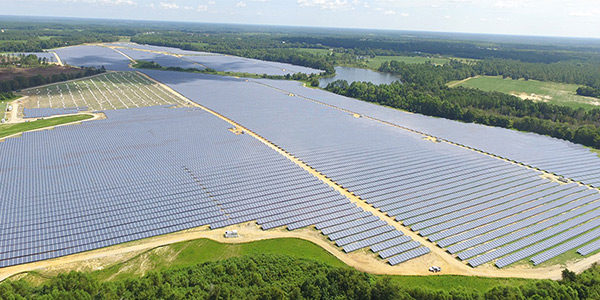By Tom Kleckner
NextEra Energy officials said they expect the company to continue increasing adjusted earnings near the top end of a previously disclosed 6-8% growth rate for the year.
“I’ll be disappointed if we are not able to deliver [those] financial results,” CEO Jim Robo told analysts during an earnings call Tuesday.
The company reported first-quarter earnings of $680 million ($1.41/share), compared to $4.43 billion ($9.32/share) a year ago.
However, adjusting for federal tax reform and investments, NextEra reported adjusted earnings of $1.06 billion ($2.20/share), beating analysts’ expectations. The Florida-based company’s adjusted earnings a year ago were $929 million ($1.96/share).
Investors reacted by driving down the company’s stock slightly to $189.79/share, a 74-cent loss during the day. NextEra’s share price has gained 9.2% since the year began and 17% over the past year.
Gulf Coast Power contributed $0.08/share to earnings, following the close of its acquisition at start the quarter. (See FERC Approves NextEra’s Gulf Power Acquisition.)
NextEra said the utility’s integration “continues to progress smoothly” despite the loss of about 7,000 customers in the aftermath of Hurricane Michael. CFO Rebecca Kujawa said the utility expects 60-80% of those customers to return, and it has filed to recover $350 million in restoration expenses.
The company said NextEra Energy Resources has added about 1 GW of renewable resources to its backlog, including its first co-located combined wind, solar and storage project. The wholesale supplier expects to develop more than 6.4 GW of wind and solar projects through 2020.
NextEra’s Florida Power & Light subsidiary announced in January a “30-by-30” plan to install more than 30 million solar panels by 2030.
Addressing NextEra’s reported $8 billion offer for South Carolina’s troubled state-owned utility, Santee Cooper, Robo said he expects a decision by June. The utility was involved in a failed effort to build the V.C. Summer nuclear plant.
“I think the state realizes Santee has upwards of $4-$5 billion of debt on an asset … that is never going to generate income,” Robo said. “I think the vast majority of folks in the state understand they need to address [this issue], and the key stakeholders are, I think, working hard to come to a conclusion about how the process is going to move forward. You can imagine we will continue to play in the process.”






